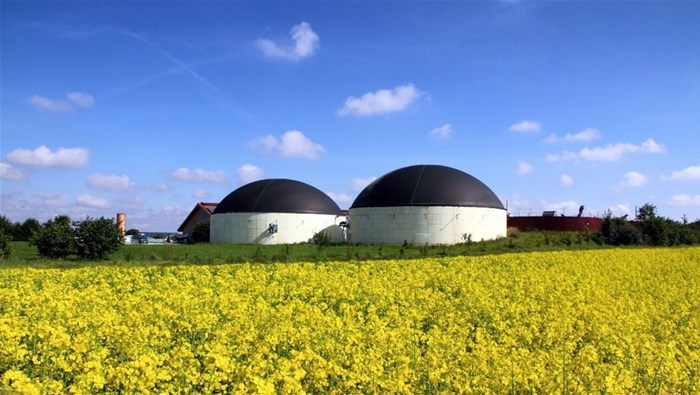Biogas production from substrates such as food waste, municipal waste, wastewater treatment plants and agricultural residues, including wheat or maize straw, have shown a significant increase in South Africa. However, the industrial viability of these operations in especially biogas plants is difficult to estimate.

©Jürgen Fälchle via
123RFIn order to attain profitability, developers need to analyse different feedstock and technology sources, and biogas plant decision-makers require data under conditions mirroring those in full-scale reactors. In general, parameter characteristics of the anaerobic digestion (AD) process are as follows:
• Size and composition of feedstock.
• Biogas production and gas composition.
• Process temperature.
• Total solids/dry matter.
• pH value.
• Ammonium nitrogen.
BMP testing system
Conducting a biochemical methane potential (BMP) test for a feedstock gives essential information on how much biogas will be produced from the feedstock and how fast the digestion process will be. BMP tests are rather time-consuming if a completely new set of feedstock is to be evaluated for use in a digester.
The ARC offers resources and support services on a cost-recovery basis to a variety of clients using AMPTII, which delivers integrated process innovations that unlock biogas potential. This technological innovation uniquely combines biochemical and computational processes to guide in the selection of the correct substrate from any pool of organic substrates. AMPTII can be easily integrated to new or existing anaerobic digestion plants that produce biogas, or other .
The main objective of the system is to validate methane potential in-house on substrates in batch, co-digestion and enzyme enhanced hydrolysis experiments. The system operates at 500ml and enables comparison of different process configurations in shorter preparation times with acceptable accuracy and high-throughput intended for industrial decision making.
The adoption of such equipment mirroring those at full-scale biogas plants normally results in matching methane yields between the laboratory tests and full-scale plants.
Providing tailor-made solutions
With the escalating cost of basic biogas monitoring equipment, tailored solutions, including AD process monitoring services with the aim of establishing a biologically stabilised AD plant, are obtainable at the ARC-Agricultural Engineering campus.
The ARC-AE offers complete monitoring of parameters that are concerned with the stability of the anaerobic degradation process. These parameters are mainly driven by biological interactions and as a result the monitoring of volatile fatty acids (VFA), FOS/TAC, the presence of heavy metal elements, hydrogen redox potential and ammonium nitrogen (NH4-N).
Digestate holds many advantages
Researchers at the ARC-AE are going to great lengths to develop and promote crop cultivation and healthy soil properties using digestate. Any anaerobic digestion creates an end product called ‘digestate’, which will typically constitute 90-95% of the unconverted feedstock material. The anaerobic digestate makes an excellent renewable (green) fertiliser, with better characteristics than organic compost.
Integrated field experiments were recently conducted at various sites to ascertain digestate’s effects in comparison with chemical fertiliser on agricultural crops’ yield and profitability.
Crop yields were higher for plants grown with digestate compared to other fertiliser treatments. In addition, our analysis showed that the highest gross return was obtained from crops treated with bio fertilisers. However, the application of synthetic fertiliser in combination with bio fertiliser can potentially increase crop yields and the subsequent economic return.
In conclusion
Our natural scientists, engineers and agricultural economists are working hard towards the establishment of protocols and mechanisms for end users. Some of the vital information an end user needs to know about are the following: storage, spreading strategy, application rate, properties of digestate and crop type, and time of application.





























